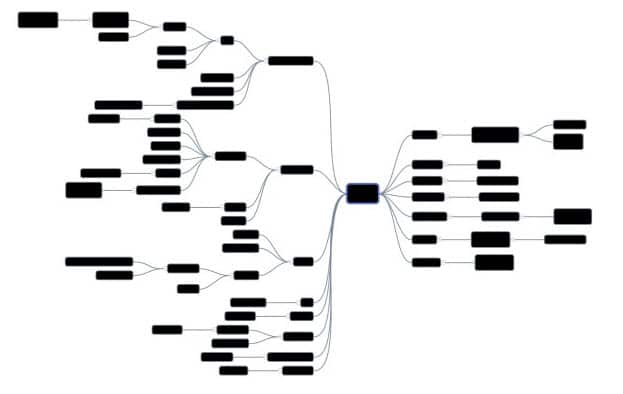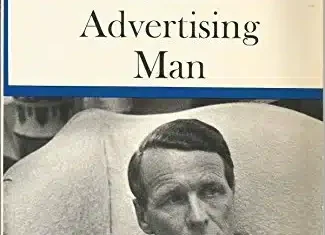In late 2009, I got an email from an acquaintance from church named Barry. It was your typical “can I pick your brain” email, which I was happy to respond to. Here’s what he asked:
“I would like to meet for coffee sometime to ask some advice on internet marketing. I am looking into a few different areas and would be interested in talking.”
I agreed, and the coffee went just as you’d expected. We enjoyed each other’s company, I gave away a bunch of free advice, and he caused me to rethink a few things. We met a few more times over the coming years, but he never, ever hired us — and that’s perfectly fine.
Two years after that initial meeting, his wife’s company needed a lot of help with their website and marketing materials. Guess who she called? Five years later, they’ve spent nearly $100,000 dollars with us, and they are one of our favorite clients to work with.
I was already in favor of meeting with people when they asked, and this series of events made me sure it was the right perspective. I figure the worst that could come out of it is a pleasant conversation about a topic I love. How can that be bad?
Brain picking is expensive
The first argument you hear to allowing people to pick your brain is that you’re giving away valuable information — and they’re absolutely right!
For example, Forbes contributor Adrienne Graham said:
“My brain costs money to maintain. There’s training, classes to attend, reading (I have to buy books), gaining certifications, costs of memberships so I can network, attending conferences and mastering my skills that all cost me money.”
All of that is true. I spend a tremendous amount of time and energy reading books and blogs, listening to (and publishing) podcasts, attending conferences, and doing whatever I can to improve my knowledge and skills. That effort isn’t free.
However, what Adrienne and others are concerned about isn’t really their brainpower. They say it is, but these are the same people that write hundreds of blog posts, appear as guests on podcasts, and give away information through their social channels all day long. It’s the time and scale that scares them off.
When you write a blog post or join in on a podcast, you’re hoping to reach a wide audience. You might be hoping to reach thousands, maybe hundreds, even just dozens. When you meet someone for coffee, though, you only reach one or two at a time. People like Adrienne see that as a downside, but I see it as an amazing opportunity.
Where do clients come from?
Years ago, I had an idea to create a mind map of all of our clients, so I could track how I got to know each of them. It took a while to build the initial map, but following the trail to some of them is very interesting. For example, when we built the website for New Hope Enterprises, I looked back to see how I met Angele, their Executive Director at the time. It turns out I met her through Beth, who I met through Harrison, who I met through Betsy, who I met through Derrick. The overall map looks something like this (names blocked out here for privacy):

I have a task to update the map every three months or so, so it doesn’t get too far out of date. For the technically curious, I use a product called MindMeister to build it, but any mind-mapping tool would do the job.
Tony
One of my favorite brain-pickers is a guy named Tony. Roughly once a year, we get together for lunch so he can pick my brain. The truth is, I pick his brain right back and we both finish lunch learning more than we started with.
Further, Tony is another person that has never hired us for anything, but has lead to some great connections. At GreenMellen we’re in the final stages of building a huge eCommerce site right now, and I can follow the trail of that job all the way back to a lunch with Tony four years ago.
Keeping up with the mind map is fun and interesting, but being able to trace clients back like that is essential. I can probably trace $75,000 worth of work back to Tony’s branch of the tree, just from grabbing lunch with him every year or so.
Being famous would make this tough
There is a big exception to all of this — if you’re very well-known, the rules change a bit. Thankfully, this is not a problem for me. 🙂 A guy like Mark Cuban simply couldn’t meet with everyone that just wants to pick his brain, because that would literally be all he does.
It’s cases like that which lead to tweets like this:
“New rule: If your email starts off with “I want to pick your brain,” my reply starts off with “at $400 per hour.”
The author of that tweet was Peter Shankman, who started and ran the very popular Help A Reporter Out (HARO) email list. Peter is undoubtedly very busy, and this response makes sense.
The problem is with those that he influences. In Peter’s own words:
“I immediately got about 100 or so retweets saying “right on!” or “Hell yes!” or similar.”
For most of those 100 or so people, allowing their brain to be picked would be a great thing to do.
Hearing…
You’ve heard me talk about some monetary business benefits of having my brain picked, but there are other reasons that go much deeper than that. You’ll notice that all of the following sections begin with the word “hearing”. While you’re there to let them pick your brain, your ability to listen and learn is where you can gain the most.
Of course, this applies to them as well. I met with a woman named Marion about a year ago, as she had a lot of issues with her business and wanted my insight. As she spoke, I had some good suggestions for her, but held my tongue until she took a breath. As time wound down, she continued to talk ceaselessly, and she never had a chance to hear how our company overcame similar struggles.
In the end, it gave me some things to think about regarding some of her successes and failures, but she ultimately got no real help from me.
Here’s what to hear:
Hearing new ideas
This is probably the most common thing I gain from pick your brain sessions. As people tell me about their current struggles and issues, it always brings to light new ideas.
I had a pick your brain lunch with Michele and Sean a few weeks ago and one of their issues was that they didn’t think Basecamp was the best bet for tracking work at their business. I’m not a big fan of Basecamp, so I was eager to tell them all of the better platforms they could use (we love Asana, but I thought Teamwork might be better for them). However, after discussing the pros and cons with them for a while, we determined that Basecamp was indeed their best bet, and I left with a greater appreciation for situations where Basecamp might work well.
Sometimes the ideas that I hear aren’t what’s being said to me, but help me solve a different issue entirely. Back in 2005, I was obsessed with Google Earth and had built a fairly popular fan site for it (it’s still online, but in serious disrepair), and I was trying to figure out how to build a war-style game inside of Google Earth. I was close, but couldn’t figure out one important piece of the interaction. During lunch with someone, we got talking about htaccess files and rewriting URLs (so that pages like “page.php?id=7” appear more friendly like “/about-us/” instead), and that inspired the solution to my Google Earth war problem! It was a completely unrelated conversation, but solved a big problem I couldn’t get past.
Years ago I gave away the application to a bunch of energetic fans of the game (it was a lot to keep up with) and they still have it running at gewar.net.
Hearing about failures
Owning an agency is scary. When you’re a freelancer, you need to worry about your well-being and supporting your family, which is a lot to take on already. Now that we’re a team of seven, I have to worry about the well-being of the entire team, and their families. It can be nerve-wracking!
As a result, I read and listen to a ton about running an agency. In fact, one of my favorite things to learn about is how companies grow, the struggles they’ve had, and how they overcame (or not) those struggles.
When someone is picking my brain, they often have a problem they’re trying to overcome. While I’m hopeful that I can assist in them finding a solution, the process of working through that problem makes me stronger as well. Most people I meet with aren’t just random people off the street; it’s people I already know, so therefore it’s likely that I’ll continue to see them at events or follow them on Twitter or otherwise keep up with their lives. Watching their issue come to a resolution, whether for better or worse, teaches me another lesson that I can apply in my own business and when I’m talking with others in the future.
Hearing yourself
It’s often said that teaching is the best way to learn. I can vouch for that, as I’ve led dozens of Meetup sessions in our area and every one of them has been a great learning experience. The interaction and Q&A with the attendees is certainly a big part of it, but preparing for each one is where the knowledge really pours in.
Before each presentation, I spend quite a bit of time preparing my slides, making notes and researching what I want to talk about. When I’m meeting someone for coffee, it’s a bit of the same thing (though to a lesser extent). I refresh myself on what they want to talk about, and often times find a new angle to discuss before we even start.
Hearing them out
Stronger relationships make a business flourish. Just sitting down and talking to someone for 30 minutes can help strengthen your relationship will them and make life better for both you. Whether they need to vent some frustration, or just hang out and talk about life for a bit, it all helps to strengthen those bonds.
As I said at the beginning, the worst that could come out of it is a pleasant conversation about a topic I love. How can that be bad?
The rules
All of that said, I have a few soft rules that I try to follow to keep from spending all of my time in coffee shops:
Know me
As a general rule, I don’t tend to let just anyone come along and pick my brain — there needs to be some kind of connection first. Between all of the Meetups and other local events that I attend, most pick my brain sessions come out of one of those. The other source is “you need to talk to my friend, because they’re having a struggle with their business that you can help them with“. That’s awesome too. Having some kind of initial connection, either from a past meeting or a referral, makes me feel much better about getting my brain picked.
Of course, if we’ve never met and you want to chat about how we can maybe build a new website for your business, that’s always ok. 🙂
Come to me
To the extent possible, I try to have people come to me to meet. There are a few coffee shops within a two minute walk from our studio, so it makes it easier to squeeze in those kinds of chats if I don’t have to carve out travel time on both sides of the meeting.
I certainly travel to a variety of meetings as needed, but the more I can keep them close to the office, the more I’m able to squeeze them into my schedule.
Clients come first
Despite my love for pick your brain coffee sessions, clients always come first. There are times when I go a few weeks without one of these meetings because we’re so busy, or need to reschedule with relatively little notice due to a client emergency. People understand — clients always come first.
You have expertise
Something we try to instill in people at our Meetup and other events is that everyone has expertise. People come to me because of my experience in building a small company or for what I know about WordPress, but everyone is an expert at something.
That means that you are an expert at something, and people could learn from you. Let them pick your brain – I promise it’s worth it.




Couple of points:
1) I wrote that nine years ago. I’ve since sold HARO (I started and ran it, btw, didn’t “help run” it…) 😀
2) My opinions have changed slightly. I still hate the “do my work for me” emails and calls that I get, but I now always take a meeting if you want it with me. But, it has to be on my terms:
You can have my brain to pick if you…
a) Go for an early morning run with me
b) Do an early morning Peloton class with me
c) Go for a Cryotherapy session with me
d) Are willing to meet for an Aaron Sorkin-style “walk and talk” before 7am.
Any of those? I’m happy to meet with you. This eliminates 95% of the people who aren’t willing to put in the commitment. The other 5%? Let’s chat. 🙂
So… How can I help?
Peter — I appreciate you taking the time to reply. I’ve edited the post to more accurately reflect your relationship with HARO. I apologize for that.
Regarding #2, that’s indeed a problem. “Do work for me” is never appropriate.
Regarding a), those are similar to my “rules” above, but very well-defined. Having it carved out like that is indeed a great way to make people have a little skin in the game.
Thanks again for your thoughts.